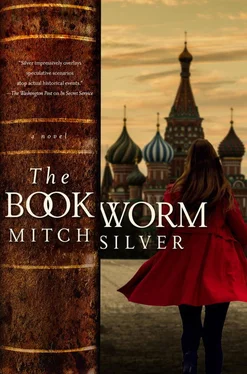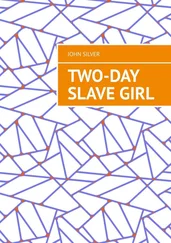He said, “ Da , Professor, I’ll make it for thirteen-thirty,” and rang off.
Lara looked at her watch. Cooped up every day in a world of the dead, a world without seasons, she needed to walk a little before going home.
You wouldn’t call Moscow a pedestrian-friendly city. Not with its concentric ring roads breaking up the cityscape every other kilometer. At the end of the day, most of the office workers out here in the northwest of the city made for the nearest Metro, but Lara liked to decompress by cutting through the park of spruce trees that ran beside the water on the other side of the shosse . Not only was it quiet and fragrant in the woods, the path eventually found its way to Pokrovskoe-Streshnevo Manor, a forgotten three-hundred-year-old brick-and-stone curiosity that was once home to relatives of the Romanovs. From there it was a short stroll to the Shchukinskaya stop on the Number Seven line that led home.
Leaving the park, Lara was surprised to find the rush hour roads were emptier than usual. It was strange, too, not to be jostled on her way down the Metro steps. She was almost to the bottom when it hit her: this was Monday of Conception Week, Russia’s annual attempt to reverse its declining birthrate.
The thing had started in one of the Volga River districts as a local contest. Make a baby on September 12 and, if he or she is born nine months later on Russia Day—the holiday celebrating the end of the Soviet Union—you could win a refrigerator, or even a car.
More and more employers started giving their workers the day off to procreate. Soon, the festivities worked their way back to dominate the whole week leading up to the big Friday night celebration, the one that was supposed to put everyone in the mood to conceive babies.
Lara slowed her pace. There was no one at home to win a refrigerator with.
Chapter 4

Farther south, on the Kremlin side of the ring, the Broadcast Center’s English-language tour guide planted herself in front of the ten-meter-high wall of TV monitors and began her last tour of the day. “Good afternoon, and welcome to the tallest man-made structure in Europe. The Ostankino Tower that rises above you the equivalent of 120 floors is now home to the most modern broadcast facility anywhere, the Television Technical Center, a state-of-the-art production and broadcast hub that transmits or retransmits more than five hundred domestic and international channels to every home in Russia and the four corners of the world.
“We employ nearly four thousand technicians, managers and on-camera personalities in this building. Look around; you may spot someone famous.”
Dutifully, the tourists looked around before turning back to their guide.
“Behind me are 108 international networks, each playing on its own monitor. At the top are the American channels, as you can see. Beneath them, clearly labeled, are each of the European, Asian, and other foreign networks, a modern Tower of Babel, as you are about to discover.”
With that, she produced an ordinary-looking TV remote and nonchalantly un-muted the 108 screens behind her. Instantly, twenty-seven languages began jabbering away, competing with each other for the visitors’ attention.
The guide laughed before muting them again. “I could have turned them on one at a time, but it’s more fun this way, no? Now if you’ll follow me…”
The group moved toward the lifts that would take them to the observation deck for a view of Moscow at twilight. They left behind an elderly man gripping his walker tightly with both hands. The guide looked back to see if he needed assistance but the man waved her off. He was engrossed in something on the BBC’s feed, and began to roll his walker toward the bank of monitors.
The British network’s News at Noon had led with a one-line tease superimposed on the screen: “Worker clearing footings for new Family Court building unearths human remains.” It was the image from the worksite that followed that had caught the viewer’s attention: two figures were standing somewhat uneasily in front of a giant earthmover, the operator of the machine and a policeman beside him, stolidly holding a human forearm up to the camera.
The ulna, intact from the elbow to the hand, was yellowed and cracked in more than one place. But what made the picture so striking was the rusty metal handcuff still locked onto the wrist.
The old man extended an arthritic finger and pressed a button on the BBC’s monitor, un-muting it again: “Good afternoon. In Parliament today, despite the austerity budget, the prime minister will ask thirty-two million pounds extra be allocated for emergency bridge and tunnel repairs in Scotland and Wales. But first… this morning, construction worker Davidson Gordon of Brixton made the grisly discovery of a handcuffed arm bone at a site near Gray’s Inn that is destined to house the Principal Registry of the Family Division.”
They cut to a one-shot of the worker, dark-skinned with a receding hairline, for his sound bite. “It was wartime work. Just pave over the bomb damage fast as you can and rebuild on top. You see it all around here and in the East End.”
The newsreader returned to the screen. “Was this a long-forgotten gaol, uncharted on any map? Or something even more sinister? The BBC have learned City officials will suspend work until the Antiquities Division of the Home Office announce their findings. The police are also taking an interest in the case, and will sift through the site tomorrow for more human remains. Next, the PM’s shock budget proposal in Westminster…”
The nonagenarian in the rotunda took out a mobile phone and laboriously dialed a local number, muttering in Russian before it went through: “Fools! You’ve no idea what you’ve got.”
Chapter 5

Aboard Air Force One
The big man seated himself on the arm of a chair in front of the bulkhead and faced the reporters, who were crammed together in the aisle. He decided to break the ice.
“Kind of crowded in here. I’m thinking I should have shelled out the four billion dollars and sprung for a new Air Force One, whaddya say?”
Not a smile, not a titter. Maybe he should just open the bomb bay doors.
“Mr. President, Russia’s leader has characterized this meeting of the G20 as Europe’s bankrupt countries coming to ‘beg the Kremlin to throw them a lifeline.’ Your tweets and your off-the-cuff comments agreeing with him were described in the European press as ‘incendiary’. How do you answer your critics?”
The President, looking particularly upbeat after his recent exertions, grinned. “The Euro is in big trouble. If the shoe pinches, Howard, it pinches.”
The Times reporter wanted to know if he was worried about security, given the ongoing protests in the Moscow streets against the government. The commander-in-chief went with his best, most dismissive smile. “We saw worse on the streets outside my rallies. No biggie.”
“Mr. President!!” A forest of raised hands tried to get his attention.
He pointed to one of the pool reporters for the networks, a particularly short woman who was standing on a seat and holding her little digital recorder in front of her. “Barbara.”
“Mr. President, the continuing question of hacking: Four months ago you rescinded the expulsions of thirty-five Russian nationals the Obama administration had banished in retaliation for the Kremlin’s attempts to interfere with the election. Your election. Many people believe your willingness, your eagerness, to make this trip is proof of an unhealthy relationship with the president of the Russian Federation. And a way to get your own falling popularity in the polls off the front pages.”
Читать дальше













